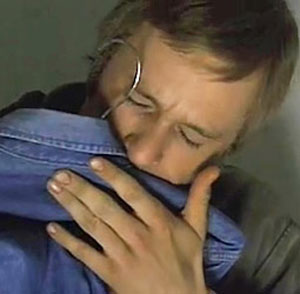...ya gotta stand it." From the wit and wisdom of Brokeback Mountain's Ennis Del Mar.
A very good friend of mine, now in his mid forties, mentioned the other day that he had spent a lot of his life trying to be someone he really isn't and that when he gave that up and let him be himself, he was a lot happier and a lot nicer to be around. "Doesn't mean," he said, "that there aren't improvements I can always make --that's part of who I am, too-- but I'm more relaxed about it."
A couple of post-Katrina jeremiad movies are still floating around. Usually cast as a failure of American something or other. I don't buy it. New Orleans was famously corrupt, and for a long time, and had a long-established, sizeable and dysfunctional (redundancy) underclass. How could things not have turned out badly? FEMA would have had to be a battalion of archangels to turn out differently. Had a similar natural disaster, like a massive earthquake, hit Minneapolis-St Paul, for instance, they would have responded differently and we would not have these self-pitying blame game passion plays.
Another friend of mine once made my life easier by pointing out the difference between blaming yourself and taking responsibility for something. Part of blaming is that it's compulsive and I've noticed that it stays stuck. In a way, it's ego-centric, focused on the defect in myself. When you move out of that a little and "take responsibility", you can see not only the past and yourself, but the future and others...and your own future. So you can start to imagine how to repair or atone or do whatever you need to. Apologize. Forgive. Who knows? Blame tends to be inert; responsibility means doing something.
One of the oldest theological battles in Christendom has to do with the meeting of the divine and the human in Jesus. There's the majority orthodox position, finally hammered out after a couple of centuries of argument. And lots of alternative and heretical points of view. Nowhere in the New Testament does Jesus say outright, I am the divine Son of God, coequal with the Father and the Spirit. But one of the things he repeatedly does in the Gospels has come to be seen as a functional equivalent: forgiving sins.
As the Bard said, to err is human, to forgive, divine. He was not far wrong. We are creatures of time and space. Once a thing has happened, we cannot make it un-happen. But one of the many reasons there can be no justice in this world, really, is that God forgives. The Oriental idea of karma ensures justice: there's no escape. But the complicated God of the Jews and Christians undoes evil, leaving it unpunished, karma unfulfilled. He sends his rain on the just and the unjust alike. Messy.
Ennis knew that.


1 comment:
John 10:30, John 14:9, John 20:28.
Post a Comment